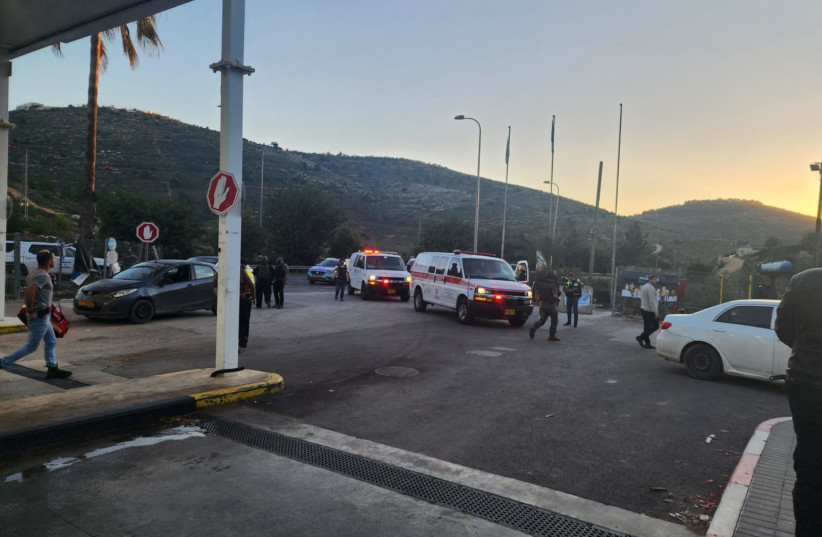Christopher Hitchens, author of Blaming the Victims: Spurious Scholarship and the Palestinian Question was lauded in his 2011 obituary in The Guardian for his unrelenting support of the Palestinians. Hitchens described the Jewish residents of Judea and Samaria (aka the West Bank, a name adjudicated by Jordan) in a most derogatory fashion.
He wrote: “...look at the Israeli settlers, paid for often by American tax dollars, deciding if they can steal enough land from other people and get all the Jews into the Promised Land and all the non-Jews out of it then finally the Jewish people will be worthy of the return of the Messiah.”
Israeli-right activist Malkah Fleisher is among those who have publicly countered this argument. Last year, she wrote in Tablet Magazine: “There’s not a place in all of Judea and Samaria that a hater doesn’t charge a Jew with having stolen. But we know the truth. We know whose land we live on. This is the heart of the heartland sworn to our ancestors and this is also the territory recognized as ours in the Balfour Declaration, the San Remo Accords, and the League of Nations’ Mandate for [a Jewish] Palestine. And while life in Judea and Samaria is beautiful, it was earned through hardship and great sacrifice. We push ahead by establishing farms, building our communities, and living normal, productive lives.”
Of course, Hitchens wasn’t the only well-known personality to demonize settlers. Current Georgia Congressman Henry C. “Hank” Johnson (of the infamous comment that Guam might “tip over and capsize,” if the United States put too many soldiers on the island) echoed the Nazis’ description of Jews as “vermin” by calling Israeli settlers “termites.”
Additionally, the US government and the European Union (EU) have vilified the half a million Jews who live in Judea and Samaria with charges of extremist “settler violence.” This, during the past year as Israelis have faced large-scale attacks from Hamas, Hezbollah, Yemen, Iran, and Iraq – and mainstream media. These accusations didn’t distinguish between a tiny minority of violent actors and the overwhelmingly peaceful community of Jews in Judea and Samaria going about their lives.

In any other context, those same smears would have been recognized for what they were – racist and antisemitic.
Additionally, although there is a popular train of thought among many Israelis that settling the Land of Israel will hasten the messianic era, it is not a consensus. While Rabbi Ed Snitkoff described Gush Emunim, one of the first settler movements as “taking the baton of pioneering Zionism and running to complete the Zionist vision, bringing the redemptive process to a zenith,” and while this outlook “became normative in most national religious circles,” he says that “many moderate Orthodox rabbis, educators, and leaders were vocal in their opposition to the movement.”
Today, the majority of Jews who live over The Green Line (the 1949 Armistice line, Israel’s de facto border until the 1967 Six Day War) also referred to by its historic and biblical name, Judea and Samaria, do not see their residing in that area as ushering in “the redemption.”
World assumption
Contrary to world assumption, among the various reasons that Jews choose to live in Judea and Samaria the majority do so for practical, not ideological or religious reasons. Cheaper housing, larger properties, and suburban sprawl make living in Judea and Samaria attractive to hundreds of thousands of Israelis.
Due to Palestinian violence and terrorism – Palestinians attempt three to six terror attacks a day in these areas – and the risk that, as happened in Jewish towns in the Sinai and Gaza, Israel could one day unilaterally evict Jewish residents of the area, housing prices are cheaper. And because fewer Israelis are interested in living in Judea and Samaria, properties and houses there are frequently larger and towns are quieter and more suburban than in other places in Israel.
Messianic and end of days considerations do not enter the calculations of most Jews who choose to live over The Green Line.
WHY DO so many around the world have an erroneous impression of the Jews in Judea and Samaria? Several factors have led to the demonization of this large community. The first is the mistaken impression that Jews have no rights to live in or govern the area.
This error stems from the fact the area of Judea and Samaria – where Jews have lived for 3,000 years, and where 90% of the towns cited in the Bible are situated – was outlined as an independent Arab state by the United Nations in its 1947 Partition Plan (an attempt to establish a peaceful compromise) to exist alongside the area outlined for an independent Jewish state. In its plan, the UN ignored the legal, historical, moral, and religious rights of the Jews to the region. The assumption that Jews have no association or history in the region was an ignorant mistake, one, however, that the world believed.
In any case, the UN plan was immediately rejected by the Arabs who wanted all of the land and attacked the Jews, beginning the 1948 War of Independence.
Ignorance is no excuse for hateful vilification of an entire community. Critics of Jews in Judea and Samaria should strive to understand the truth about the community before assuming they are radical extremists or worse.
The writer is a certified interfaith hospice chaplain in Jerusalem and the mayor of Mitzpe Yeriho, where she lives with her husband and six children.
